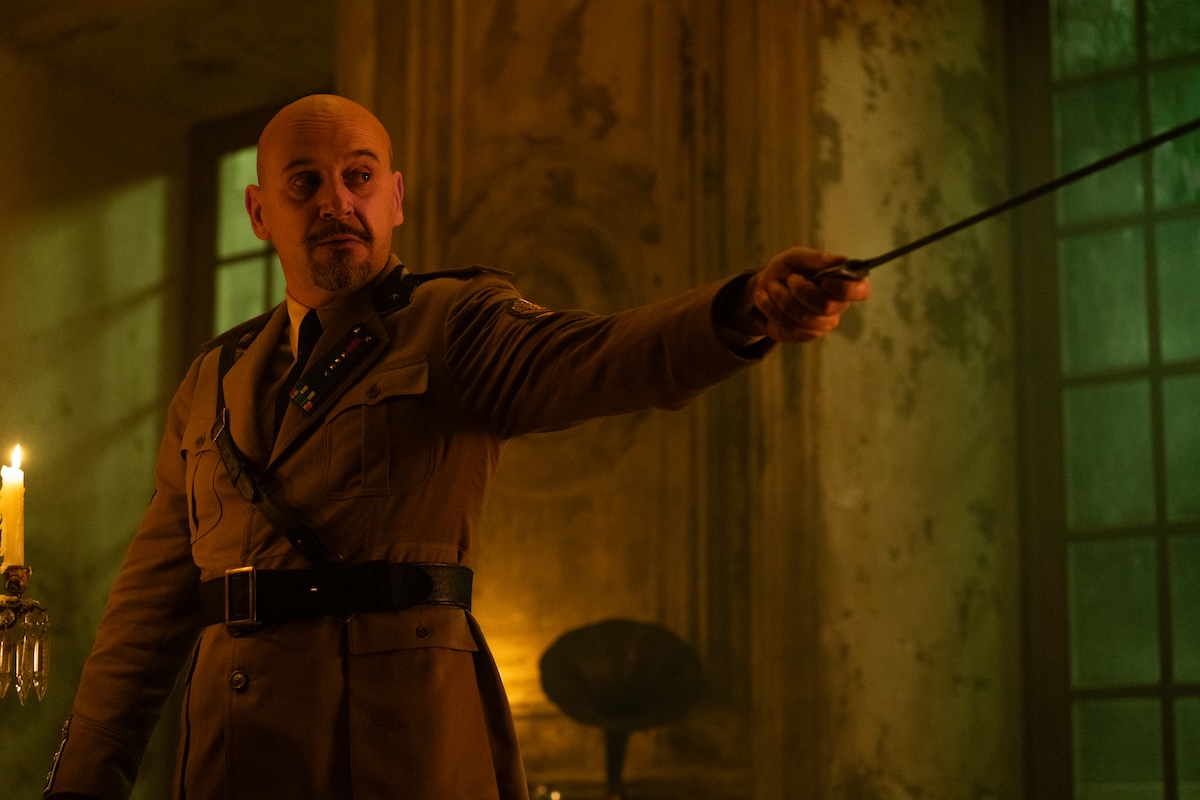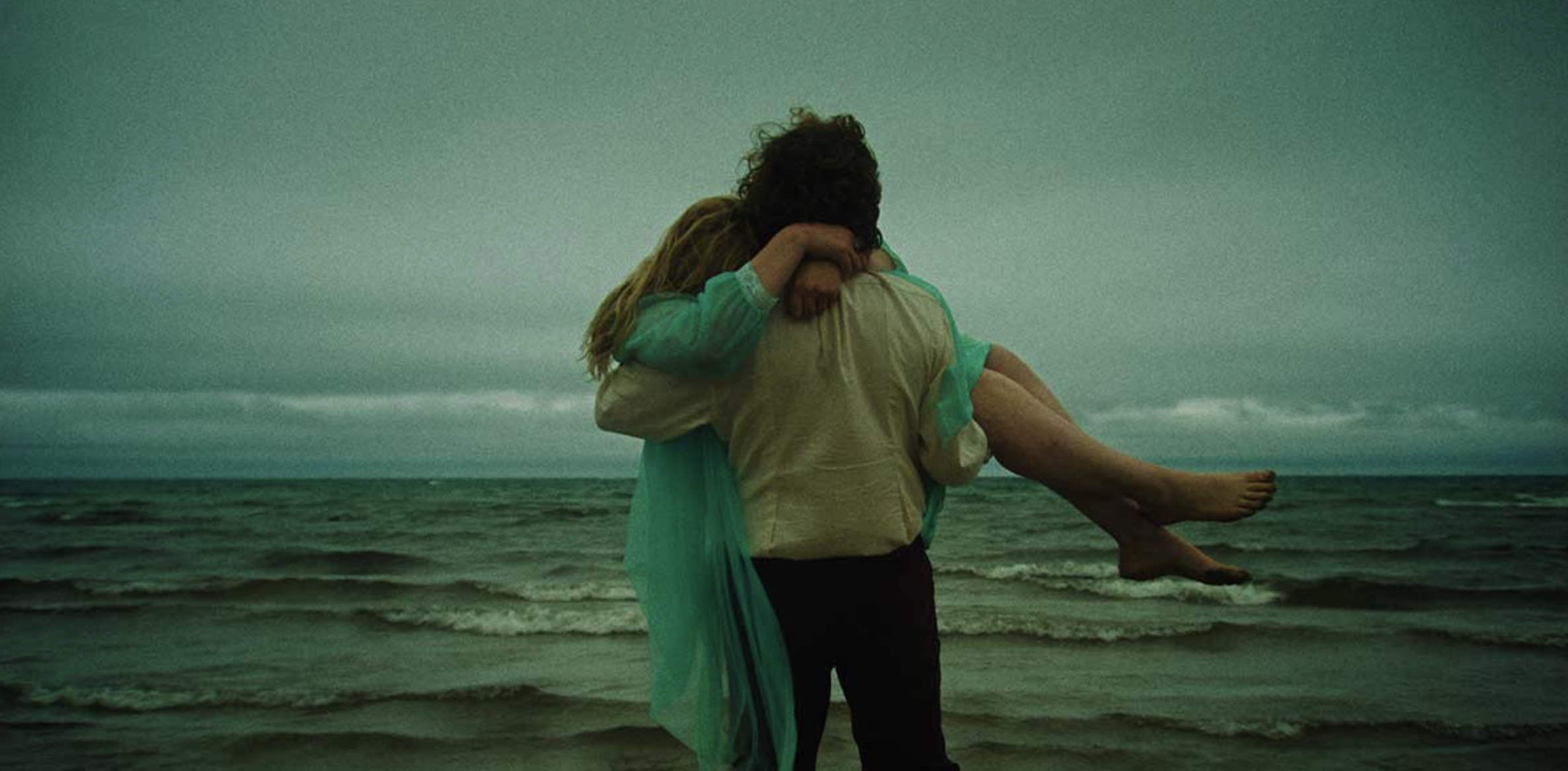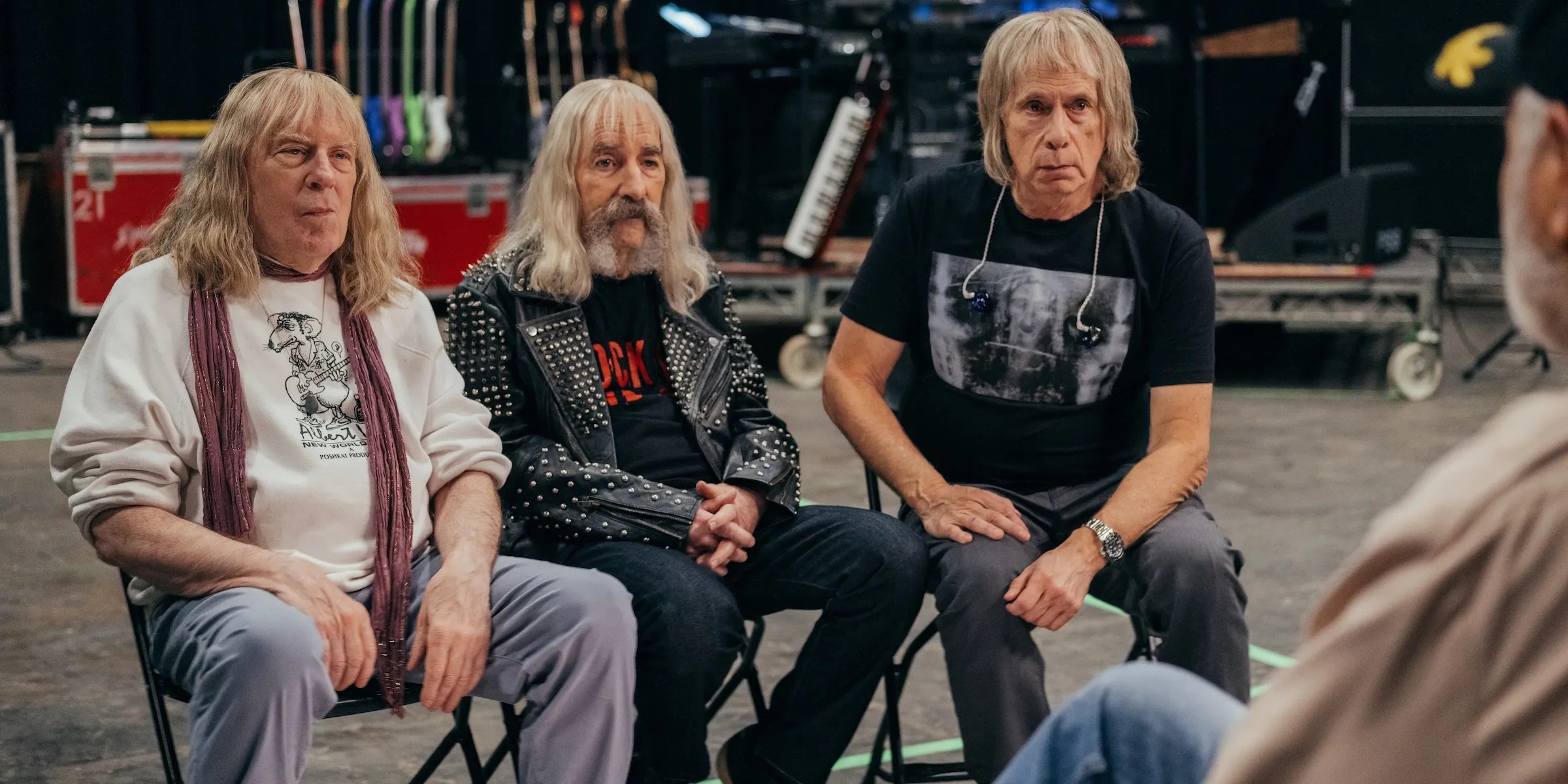Long before Benito Mussolini turns to the camera and says, “Make Italy great again” — speaking in English for the one and only time in Joe Wright’s eight-hour limited series — it’s clear whose name would precede “Son of the Century” if MUBI were to greenlight a 21st century installment.
Of course, Donald Trump likely looms larger than other modern fascists for me, given my (increasingly embarrassing) American roots, but “Mussolini: Son of the Century‘s” chosen timeline maps its tyrant’s rise to power so plainly onto that of the United States’ wannabe-dictator, it’s hard to argue coincidence. Fascism is on the rise everywhere, but this thrumming critique has its sight set on one particular blackshirt, and he’s stained in orange.
Take, for instance, where the series begins: with Mussolini the “journalist” railing against socialism while crafting entertaining propaganda that furthers his own agenda. Sure, Trump “only” used television to fabricate his reputation as a brilliant businessman, rather than write Fox News chyrons first-hand, but media manipulation is still media manipulation, then and now, in print or on TV. A more explicit reference comes seconds later, when Mussolini (played with boisterous tenacity by Luca Marinelli) mocks his right-hand man for having “the smallest hands.” (“I can’t imagine his cock,” Mussolini adds, speaking directly to the camera.) Then, still within 10 minutes of the first episode, a mob of fascists brutally batter a peaceful group of socialists.
The ghastly scene sets up the series’ ongoing central conflict (establishing the villains and heroes, if you will), and — even though “Son of the Century” was made long before right-wing media painted Zohran Mamdani as an existential threat to America — fascists and socialists tossing barbs at one another (or, more accurately, fascists tossing grenades and socialists shouting accusations of grenade-tossing) still brings the battle between 1920s Italian political parties roaring into 2020s New York City.
Mussolini actually used to be a socialist, even running their official newspaper before he was ousted as a warmonger and pivoted to fascism. When Mussolini explains it (directly to the camera again, as he so often does), fascism is a movement of contradictions: “We’re not a party,” he says, “we’re an anti-party.” They don’t engage in politics because they’re anti-politics, and the same goes for elections, the monarchy, and the church. “Fascism is everything,” Mussolini says, “and the opposite of everything.”
So… it’s nothing. Accepting such ruthless adherence to victory without meaning is the foundation of Mussolini’s movement — “Our only doctrine is action,” he says — so it’s no wonder he steadily betrays each of his oppositional positions in order to move up the ranks. Anti-politics? Not if a little politicking brings him more power. Anti-elections? Not if he can win them (democratically or otherwise). Anti-monarchy? Not if he has a chance to be king. Anti-church? Who is God to a man like Mussolini, except another influence to be brought under his command?
If none of this brings Trump to mind, first of all, I envy you more than you could possibly imagine, and secondly, congratulations on your recent escape from that giant rock. Wright’s limited series is a furious fever dream connecting the past to the present. Events span just over five years of Mussolini’s life, ending right before his decades-long dictatorship formally starts, but they still cover his pivotal March on Rome (when Mussolini called for an “insurrection” instead of elections), the fascist party’s infiltration of Parliament (“[They] think they’ve domesticated us, but they’ve only legalized us”), and multiple scenes foregrounding Mussolini’s violent treatment of women. (He’s shown raping a newspaper staffer, and his wife, Rachele, brags that their first time together was “by force.”)
Wright captures the madman’s energy with his trademark kinetics. There are rear-projections of old newsreel footage cast against foregrounded black-and-white shots of his cast; iris ins and outs that emphasize Mussolini’s isolating, irreparable ego, or reveal temporary relief via his throngs of admirers; ornate parties, rallies, and clashes filled with scores of extras and set within shadowy, palatial spaces; and, of course, there are extended tracking shots galore.

Marinelli — a two-time Best Actor winner at the Venice Film Festival (“Don’t Be Bad,” “Martin Eden”) who Wright called “one of the greatest actors of his generation, if not the greatest actor of his generation” — is at the center of it all. His forceful speechifying is often captured from a low angle, positioning the viewer like Mussolini’s awed front-row audience, but such formal assists are largely unnecessary when it comes to appreciating the character’s gravity. From enunciation to intonation, gesticulation to cadence, he nails the propulsive rhythm of Wright’s scenes (co-written by Stefano Bises and Davide Serino) and earns your attention without elevating Mussolini above the opportunistic, shitty little man he was. Marinelli’s performance is well-measured, even when his character is hifalutin and brash.
Still, “Mussolini: Son of the Century” comes up short relating anything outside of Mussolini’s point of view. We’re so closely tied to the central character’s perspective — he’s in nearly every scene, he narrates his own story, and he sucks up all the oxygen by design — that it’s impossible to see him how the public must have seen him then. He talks of casting “magic tricks” on Parliament and the proletariat alike, but we’re simultaneously too far from the spectators to appreciate the illusion and too close to the magician to see anything but a liar.
The series also shares a common struggle with other tales of Trump when it comes to dissecting a psyche devoid of principles and meaning. “We fascists have no preconceived ideas,” Mussolini says, not long after he defines fascism as “the opposite of everything.” Hinging a lengthy biography on a person whose entire identity comes down to procuring power doesn’t make for a dynamic portrait; it’s a simple one, and “Son of the Century” does a fine job acknowledging as much. That’s what makes fascists so dangerous, after all — they don’t believe in anything, which makes them both unpredictable and ruthless — but it doesn’t lend itself to a layered, developing narrative.
Mussolini will say anything and do anything to further his personal agenda, and his personal agenda amounts to hoarding power. There’s nothing else to him — all bluster and no substance — and as honest as that characterization may be, it’s dramatically inert. For as keenly as Wright’s direction represents Mussolini’s bombastic flash as the plot ticks off historical moment after historical moment, the story tied to them can feel repetitive, familiar, and hollow.
What that leaves is an eight-hour series with the emotional impact of watching the news. The message is valuable and urgent — no one’s disputing the need to identify Nazis so Indiana Jones can immediately punch them in the mouth (figuratively speaking) — but the packaging of that message does little to deepen our understanding for or appreciation of the anti-fascist movement. Mussolini was Trump before Trump, and Trump is the modern Mussolini. OK. No argument here. What else ya got?
Grade: B-
“Mussolini: Son of the Century” is now available on MUBI.



